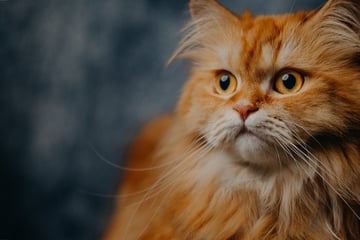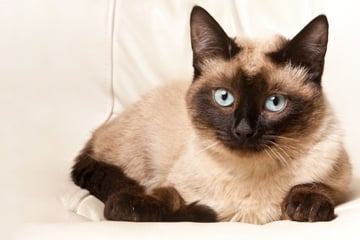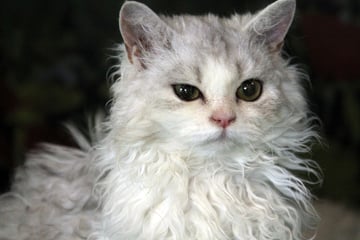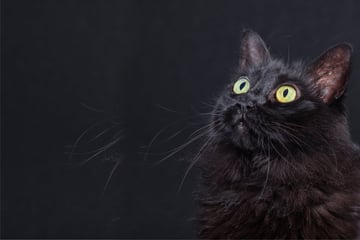Best cat breeds that don't shed
Love cats, but hate allergies? Do kitties make your heart swell with love, while your eyes swell up to the size of a golf ball at the merest hint of cat fur? Have no fear, here are a few fantastic shedless cat breeds to check out!
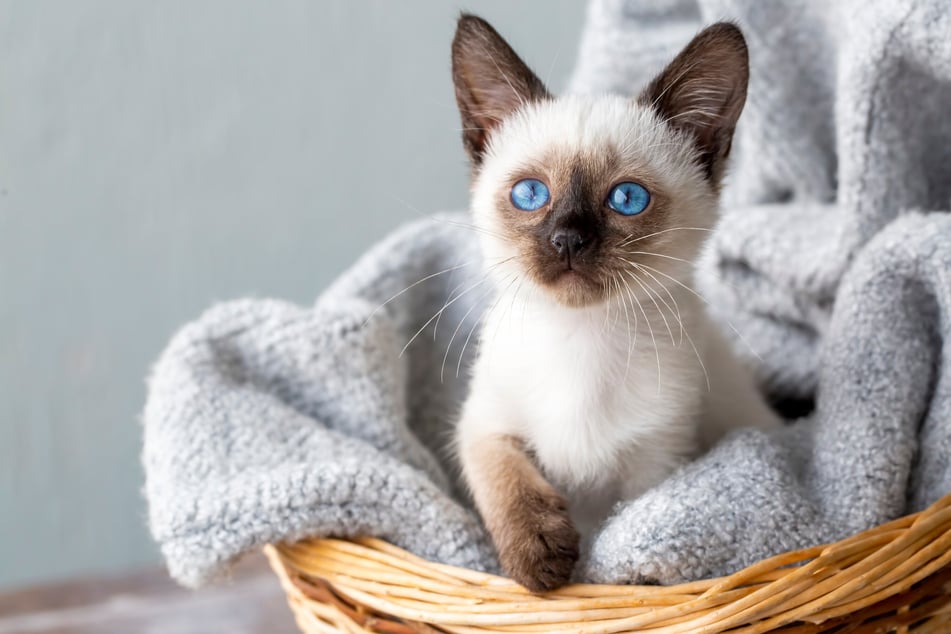
If you're a cat person with a cat allergy, you have our sympathy – but also a helping hand!
Allergies are one of those minor curses that some of us have to deal with an entire lifetime. When they deprive you the potential company of a furry, feline friend, that adds a whole new level of unfairness into the mix.
And yet, is it still possible to get a cat if you have allergies? And if so, which cat breeds are non-shedding?
TAG24's cat guide to the rescue! We'll take you through everything you need to know about cat breeds that don't shed and some recommendations for how find the perfect cat companion for your needs!
Do all cats shed?
Shedding is incredibly important for a cat's coat, as it helps to replace and renew their fur. As they lose dead hair, they reduce the risk that they face from those pesky fur balls, allow their skin to exfoliate due to the release of natural oils, and prepare themselves for the oncoming season.
As a result, any cat that has fur will shed. The trick, instead of finding a cat that simply loses no fur, is to find a cat that loses less fur.
Top 7 cat breeds that don't shed
There are many aspects worth considering when having a conversation about cat shedding and allergies. In the end, though, things seem to naturally come down to no-shed cat breeds. Let's talk about that.
Sphinx cats are shedless
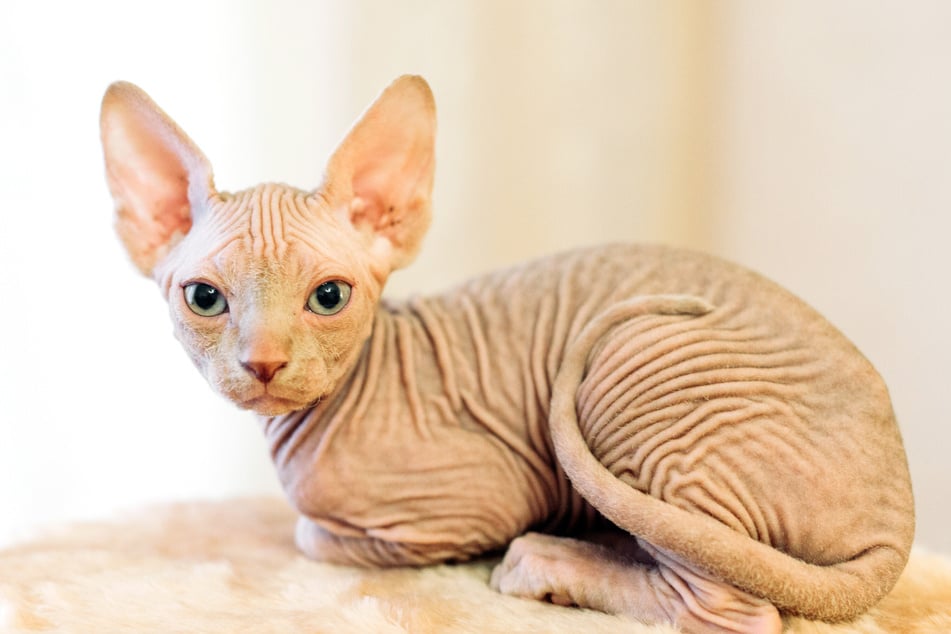
If you've ever been to Egypt, you'll know about the Great Sphinx of Giza. That towering limestone monument to the Pharaoh towers above the Nile like a giant, judgmental kitty with no nose. The resemblance to the cat breed with the same name is undeniable.
What you might be even more excited to find out is that the Sphinx cat is also considered a "naked" and no-shed variety. Of course, it's a mammal, so it does have some hair, but the layer is so thin that it's unlikely you will notice it.
Sphinx's are generally people-friendly, curious and active, attentive, and affectionate, and make incredibly great house cats. They thrive when living with another common-minded kitty, and are pretty darn cute for a cat with so little fur.
Don't get it burnt: The Sphinx has very little fur. In other words, it's extremely susceptible to the cold and can be very easily sun burnt in the summer. Keep it as an indoor cat, not an outdoor cat.
Bengal cats are non-shedding
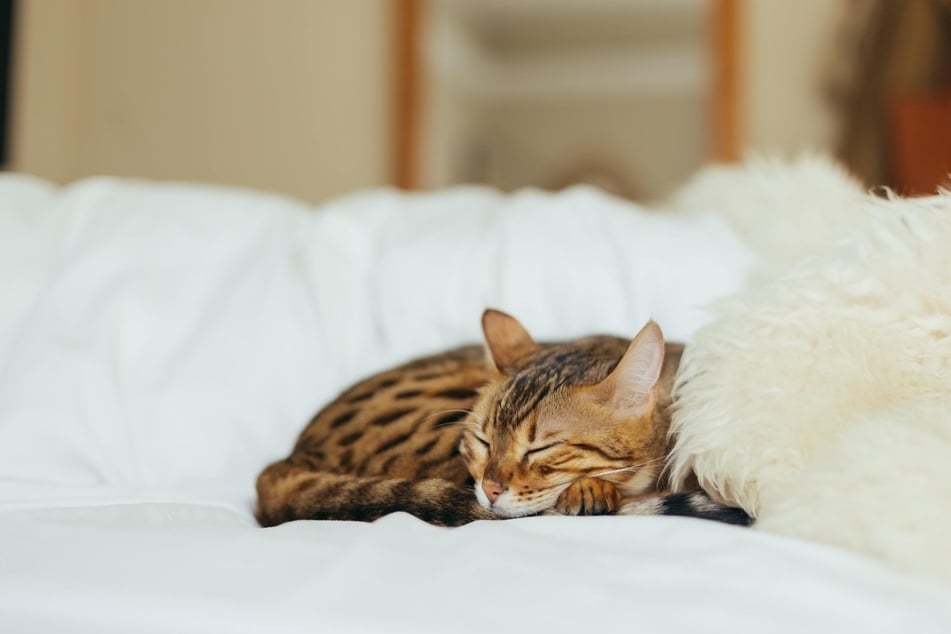
The Bengal is a very strong specimen, known for showing off its golden, shimmering, thick, mackerel coat. Despite its dense fur, though, it rarely sheds and can work quite well for those a little sensitive to allergies.
With an open and friendly nature, the Bengal cat is people-oriented and very communicative, and will often wake up its owners for some play time. We would also recommend allowing your Bengal outside, as it's a quick learner and a curious kitty.
Remember that Bengals will generally prefer to share their home with a fellow cat, so feel free to pair this little cutie with a friend. They'll cuddle, play, and have one hell of a wonderful life together. Just don't let Bengals get bored. You'll regret it...
Burmese cats don't shed
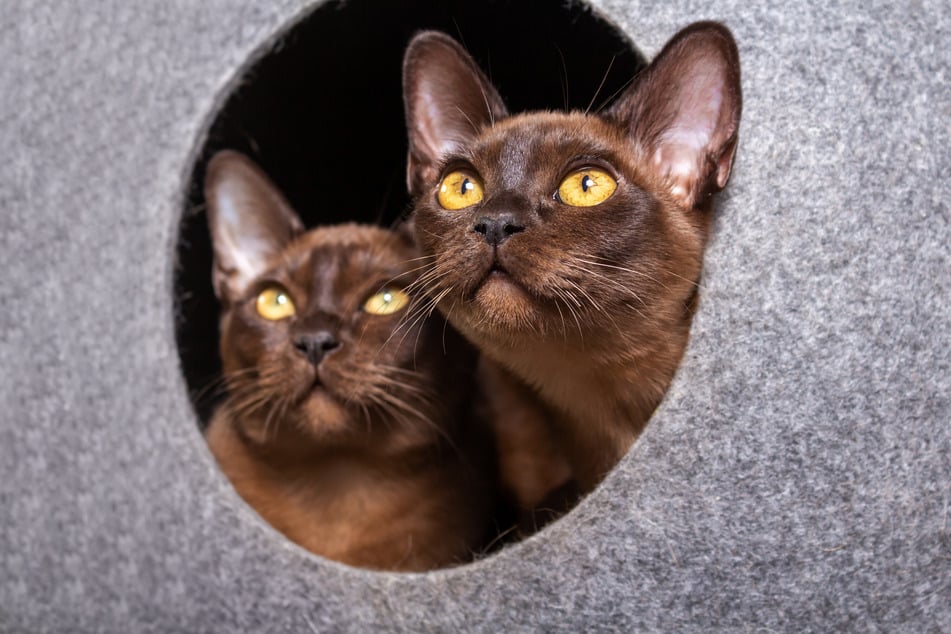
The beautiful Burmese stands out for its large golden eyes, its affectionate and demandingly cuddly nature, its active personality, and its excessive curiosity. On top of all this, the Burmese also stands out for losing very little hair even during its peak shedding season.
Many people actually compare Burmese cats with dogs, as they have many similar traits and often find it hard to leave their human's side. This makes this particular breed incredibly loyal, perfect for cuddling, and great for anyone who is a little lonely and has plenty of time to provide that care and attention.
Savannah cats are hypoallergenic
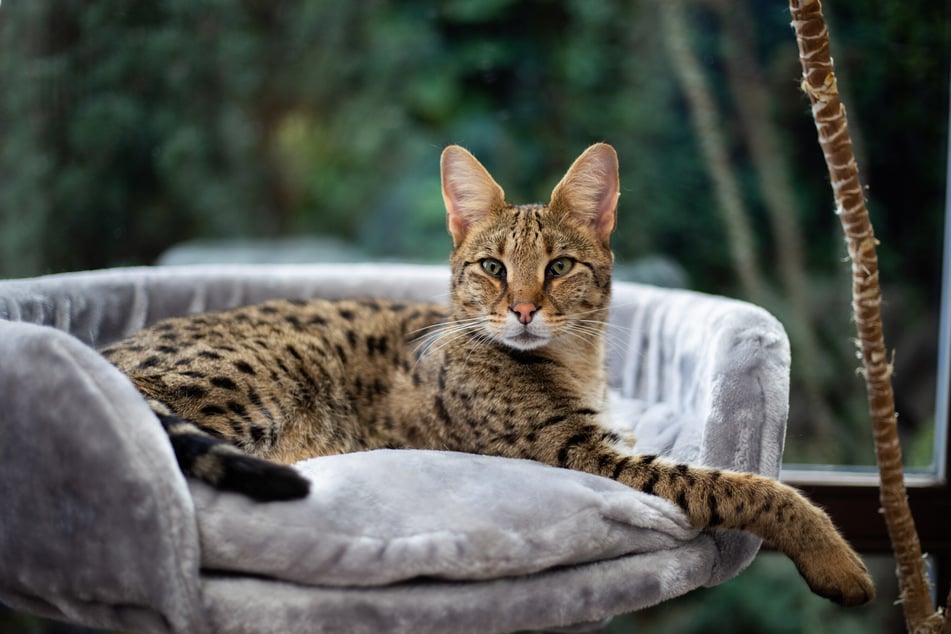
The Savannah cat might look like a Cheetah, but it's not. These absolutely gorgeous kitties are incredibly slender, unbelievably talented at jumping (they can leap a whopping 6–7 feet from a standing start), active, and a great deal more independent than many of the other breeds on this list.
Temperamental and curious, the Savannah cat has a thick, luscious coat that is known to be quite good for those with fur allergies. Just be aware that owning a Savannah can be a bit of a challenge. Provide it with plenty of space and a ton of climbing opportunities.
The Siamese is a cat that doesn't shed
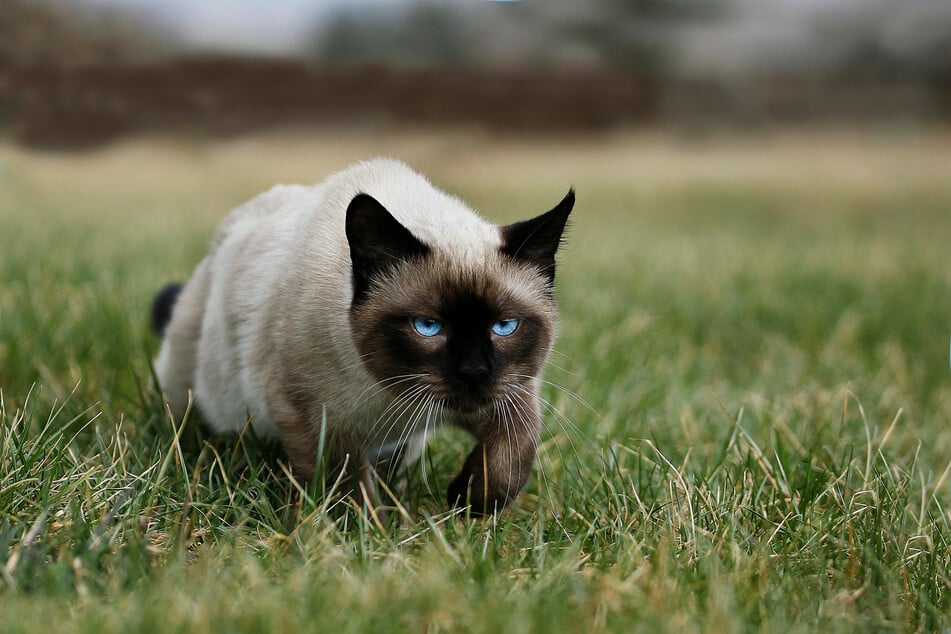
Siamese cats are incredibly special, and one of the most recognizable and beautiful breeds in the world. With those dark spots on their head, ears, and paws, Siamese feature bright eyes and a deeply captivating vibe. If you're looking for a particular aesthetic, they are a great choice.
What's important to know, though, is that Siamese cats are incredibly active and will need consistent daily activity if you want them to behave well. They love playing, or fighting other cats, and will want to climb all over everything. They don't shed too much, either, so that's a bonus!
Non-shedding cats include the Russian Blue
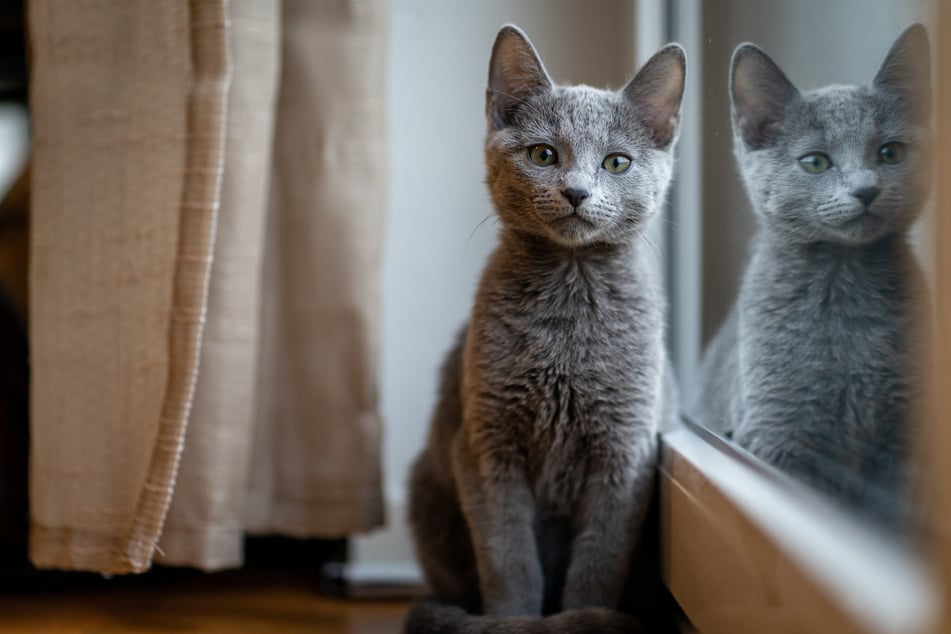
The Russian Blue is a petite kitty that typically plays host to a gray-blue coat that sheds very little. It is not particularly people-oriented, even if it is incredibly cute, but is instead an active, curious, and rather wild cat breed that will thrive when outdoors.
While they may not be very affectionate, Russian Blues are still rather friendly and open to petting every now and again. They are incredibly confident and, as a result, won't be too opposed to strangers. Importantly, though, they get bored easily, so it's a good idea to get them a companion.
The Oriental Shorthair is no-shed
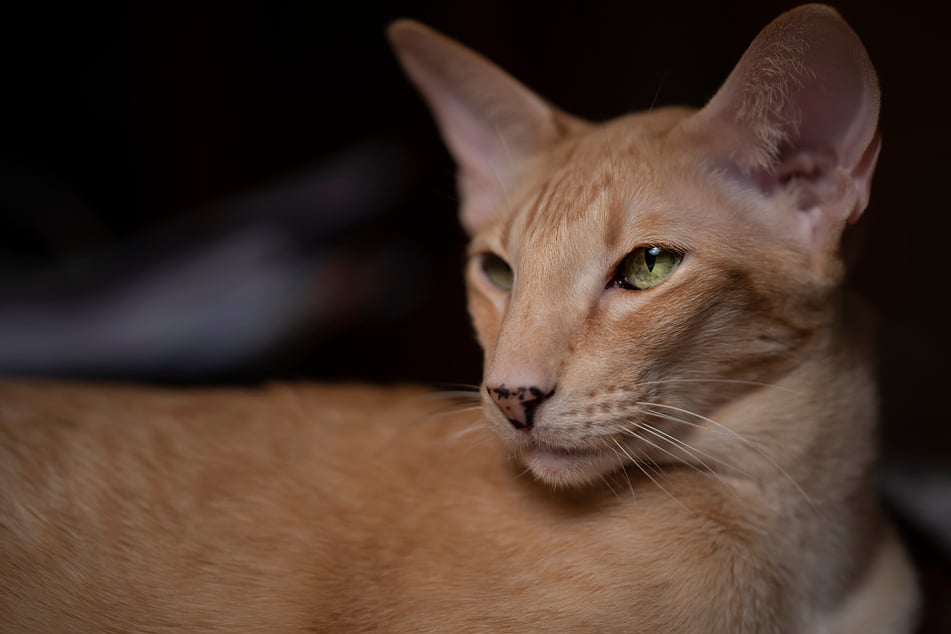
The Oriental Shorthair is a wiry breed, with giant ears and curious coat colors and patterns. That same coat is short, lies close to the body, and rarely sheds. They are people-oriented kitties, curious and open, and will always enjoy exploring their surroundings and territories.
It's a great idea to pair the Oriental Shorthair with another sociable and friendly non-shed cat, as they can get rather lonely. Mutual grooming and play will produce a great deal of happiness within this cat breed, and will steal your heart as well. So cute!
Are shedless cats allergy friendly?
A cat is not allergy-friendly or hypoallergenic just because they don't shedless. This is incredibly important to understand, because a person who is allergy-inclined could develop long-term illness if they have a cat.
Instead, many people who suffer from a cat hair allergy are actually not allergic to the hair itself, but to the saliva that often slicks the hair. During grooming, a cat licks its skin and fur and, once this hair becomes airborne, the human suffers an allergic reaction.
Keep in mind: That doesn't mean that you should give up, though. Go and get your allergies checked professionally, and see if there is a cat breed that will fit your health needs.
Look for hypoallergenic cats if you're concerned
While many shedless cats are actually not hypoallergenic, there are still a few that could work for you. Your best bet is to talk with a veterinarian, or an experienced pet store owner. Remember, though, that it is important for you to sort out these issues and check with your doctor before adopting a kitty, as you could develop long-term health issues.
Cats that don't shed are, generally, far safer than normal cats – but there is never a full-on guarantee, even for a cat like the Sphinx. As a result, be careful and stay healthy.
Cover photo: 123RF / Esindeniz

